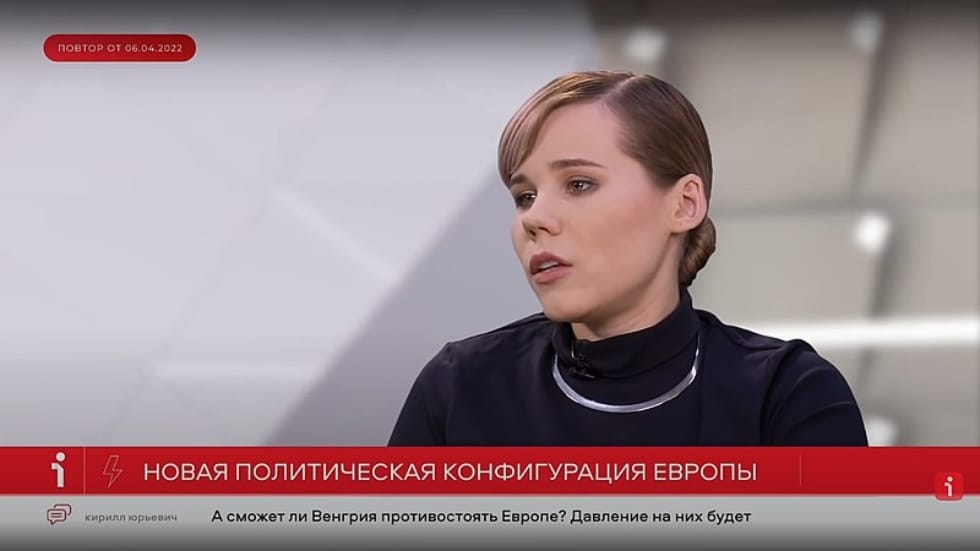Moscow has identified their second suspect in the August 20 car bomb murder of Russian journalist and political scientist Darya Dugina, according to a FSB statement issued Monday. Dugina was the daughter of Alexander Dugin, the Russian nationalist and philosopher.
Though speculation continues and Kiev denies involvement, the FSB previously identified their prime suspect as Natalya Vovk, a 43-year-old Ukrainian national. The Russians have claimed she was working for Kiev’s “special services” and is a member of the neo-Nazi Azov battalion, the infamous Ukrainian national guard unit.
The FSB said Vovk entered the country with her 12-year-old daughter roughly a month before the assassination. Moscow claims she rented an apartment in the housing block where Dugina resided to conduct extensive surveillance on the journalist, including following her around in a Mini-Cooper with various license plates to avoid being detected. According to a report in RT, the FSB added that “Vovk used a car with a license plate from the Donetsk People’s Republic when entering Russia, but replaced it with a Kazakhstan license plate when driving in Moscow, and a Ukrainian plate when crossing into Estonia.”
Dugina and her father attended a family festival with little to no security the night she was killed, where Vovk and her daughter are said to have been present. A bomb was planted underneath Dugin’s SUV on the driver’s side, though he ultimately left the event in another vehicle. Dugina exited the festival driving her father’s Toyota Land Cruiser. The bomb exploded on a highway outside Moscow five minutes later, after which she crashed the car and was burned beyond recognition. Vovk is said to have planted the bomb in the parking lot where security was lax and detonated it remotely, allegedly fleeing to Estonia the following day. The FSB provided video footage of Vovk entering Russia, going inside the apartment building where Dugina lived, driving around with the various license plates on her Mini-Cooper and hastily leaving the country.
The second suspect named by Moscow is Bogdan Tsyganenko, a 44-year-old Ukrainian citizen. The FSB described him as another member of the Ukrainian “sabotage and terrorist group” that organized and executed the assassination. Tsyganenko is alleged to have assisted Vovk in the murder by helping her build the improvised explosive device (IED) that was planted on Dugin’s Toyota. He is also accused of providing her fake identification in the form of a Kazakhstani passport and license plate belonging to a real person named Yulia Zaiko. Tsyganenko is said to have entered Russia via Estonia on July 30 and left the country just a day before the murder took place.
The FSB provided 11 minutes of CCTV footage which is purported to show Tsyganenko entering and exiting a Moscow garage where the IED was allegedly assembled, collecting the fake license plates for Vovk’s car and driving around with her, as well as entering and leaving Russia himself. More CCTV footage of Vovk was provided as well, showing her walking around the parking lot at the festival where Dugin’s SUV was parked. Vovk was surveilling Dugina’s movements, followed her in the Mini Cooper when Dugina left the festival and detonated the bomb shortly afterward, according to the FSB.
This alleged targeted assassination would be a major escalation in the war, though Russia has not offered definitive evidence proving Vovk or Ukrainian intelligence were responsible.
Dugin is often described in the Western corporate press as the “brain” of Russian President Vladimir Putin and is said to hold significant influence over Russia’s foreign policy, though his importance is widely disputed. By all appearances the two men have never met, and, according to some analysts, Dugin is a marginal figure in Russia who is better described as a Putin critic, long advocating stronger policies regarding both Kiev and the West. In 2017, the RAND Corporation wrote that Dugin is “best thought of as an extremist provocateur with some limited and peripheral impact than as an influential analyst with a direct impact on policy,” adding that he “does not appear to have direct involvement with the major political parties.”








